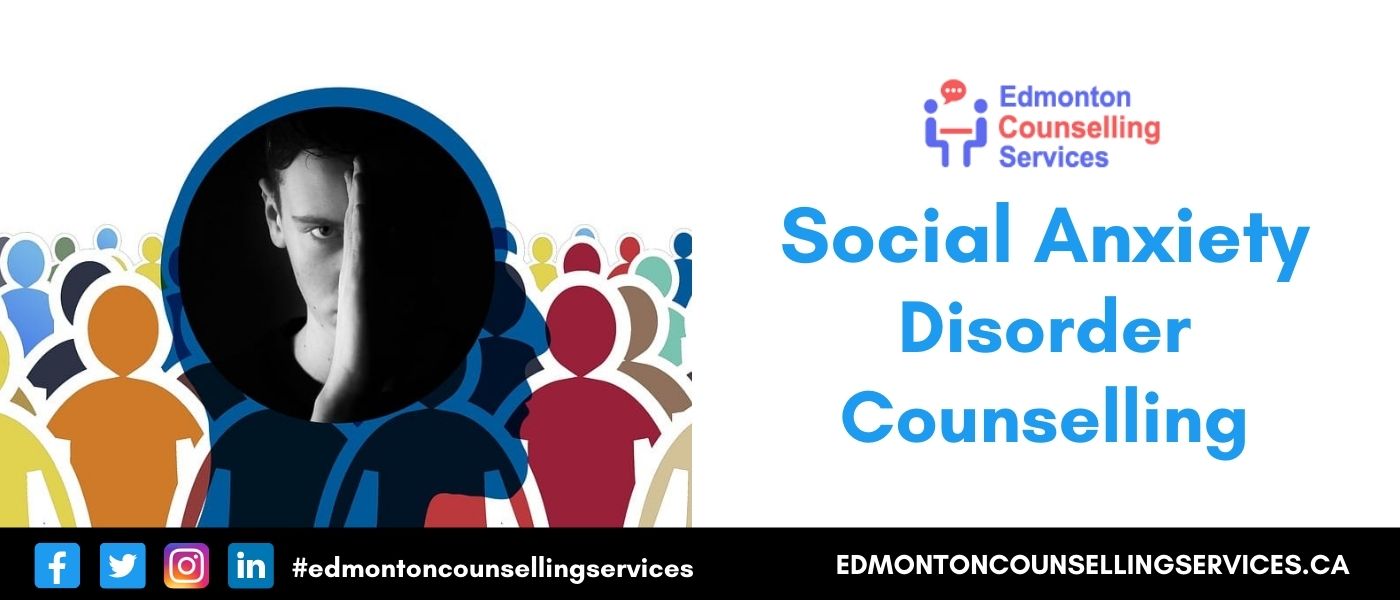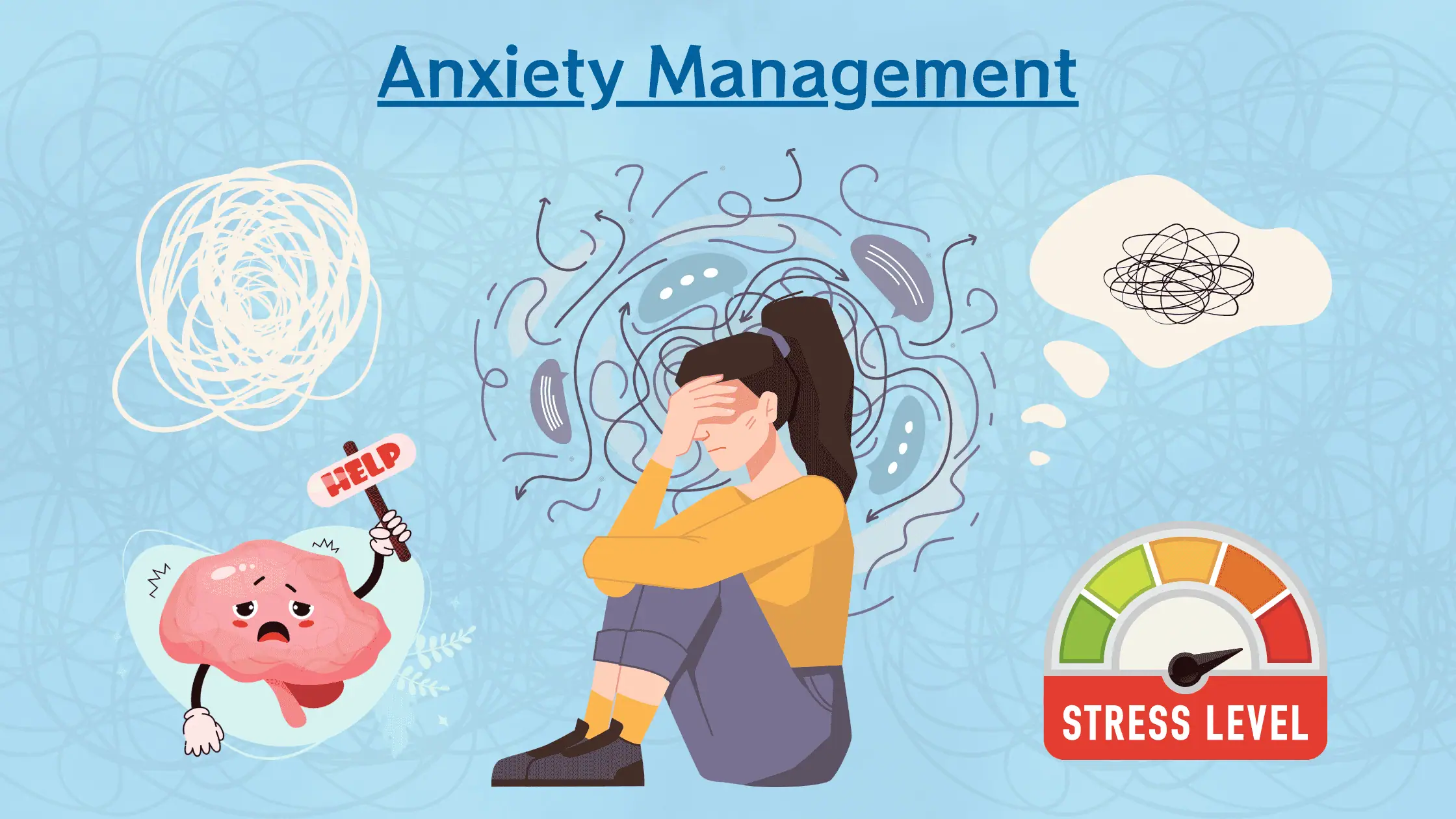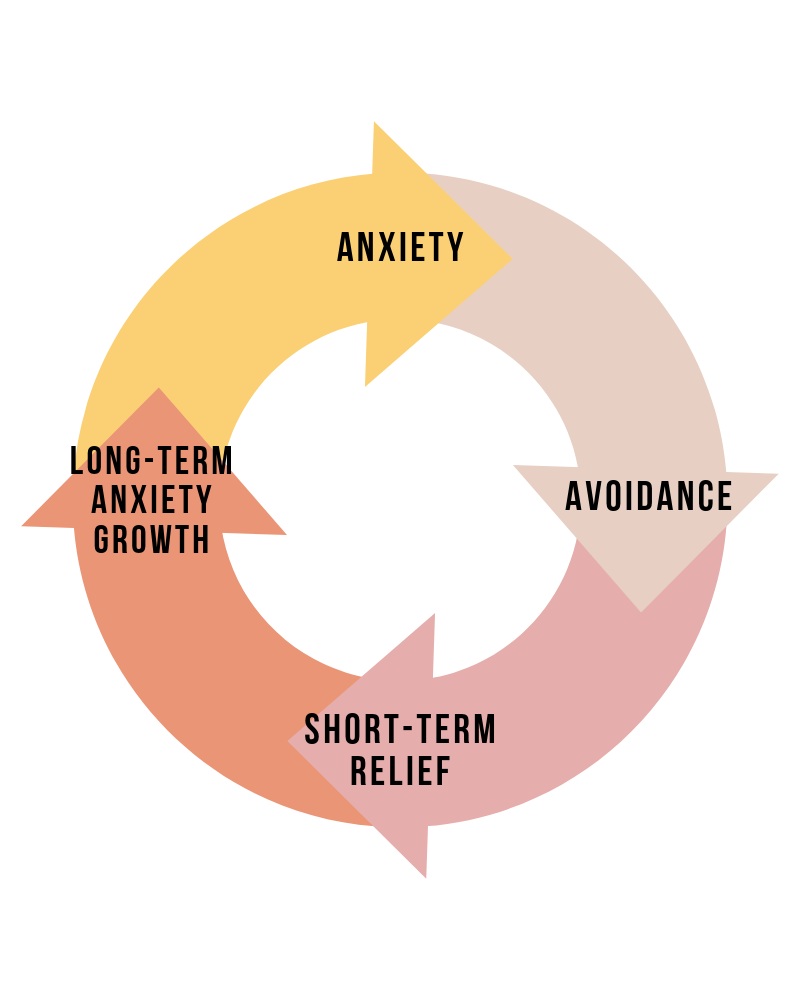Individual counselling for anxiety sessions that truly help
Individual counselling for anxiety sessions that truly help
Blog Article
Exploring Different Techniques in Therapy for Anxiousness Problem for Long Lasting Adjustment
When tackling stress and anxiety conditions, it's important to check out a selection of counseling methods. Each technique uses special insights and tools to assist you manage your signs and symptoms efficiently. You could locate that incorporating strategies can generate the most effective results. However, understanding the nuances of these approaches is key to fostering lasting adjustment. What if the best mix could launch a brand-new level of emotional well-being for you?
Recognizing Anxiousness Conditions: A Short Introduction
Stress and anxiety disorders, which influence countless individuals worldwide, can greatly influence day-to-day live. You might experience overwhelming feelings of anxiety or fret that seem unmanageable. These feelings can cause physical signs and symptoms like a racing heart, sweating, or perhaps lightheadedness. Typical sorts of anxiety problems include generalised stress and anxiety disorder, panic attack, and social stress and anxiety problem. Each has special indications, but they all share a propensity to disrupt your regular and relationships.Understanding the origin of your anxiety is essential. It might stem from genes, brain chemistry, or life experiences. Identifying your triggers can help you handle your responses much better. It is necessary to bear in mind that you're not alone in this struggle. Many individuals face similar obstacles, and seeking aid is a strong step towards sensation better. By finding out about stress and anxiety disorders, you're already on the course to understanding and managing your condition better.
Cognitive-Behavioral Treatment: Challenging Adverse Idea Patterns
In Cognitive-Behavioral Therapy, you'll start by identifying the adverse idea sets off that add to your anxiousness. You'll work on replacing them with even more favorable alternatives when you identify these ideas. Together, you'll develop reliable coping strategies to help manage your anxiousness in everyday situations.
Determining Unfavorable Thought Triggers

Recognizing the specific triggers behind your adverse ideas can be crucial in taking care of anxiousness when you run into moments of distress. Beginning by focusing on scenarios that provoke sensations of worry or fear. Is it a crowded area, a forthcoming deadline, or a conversation with particular individuals? Write down these instances in a journal. This will aid you identify patterns in your reasoning. Notification physical feelings that accompany your unfavorable ideas, like a racing heart or rigidity in your breast. By pinpointing these triggers, you acquire understanding right into what's fueling your anxiousness. Understanding these links is the primary step in testing those thoughts and ultimately restoring control over your psychological actions.
Changing Ideas With Positives
Challenging adverse thought patterns is a crucial action in changing your attitude and decreasing anxiety. You may typically find yourself caught in cycles of insecurity or catastrophic thinking. Rather than allowing these thoughts dictate your sensations, method changing them with realistic alternatives or favorable affirmations. When you think, "I can not handle this," shift it to, "I can take care of challenges one action at a time." This easy modification can substantially impact your psychological state. On a regular basis recognizing and countering these negative thoughts aids create a healthier internal dialogue. Remember, it requires time and initiative, but regularly practicing this method can lead to long lasting change, empowering you to face anxiety with restored confidence and resilience.
Structure Coping Methods Together
Replacing unfavorable ideas is only the beginning of taking care of stress and anxiety efficiently. To produce long lasting change, you need to develop coping techniques that empower you. Cognitive-Behavioral Treatment (CBT) aids you identify and challenge those unhelpful idea patterns. With each other, you and your counselor can discover how these ideas effect your feelings and behaviors.Start by creating useful methods, like journaling or mindfulness exercises, that permit you to face anxiety head-on. When you face your concerns gradually, you'll learn to react in different ways.

Mindfulness and Acceptance-Based Approaches: Cultivating Present-Moment Understanding
As you browse the intricacies of stress and anxiety, including mindfulness and acceptance-based methods can substantially improve your ability to grow present-moment awareness. By concentrating on the present moment, you'll find that you can observe your thoughts and feelings without judgment (Counseling services for anxiety). This practice helps you recognize your anxiety without feeling overwhelmed by it.Engaging in mindfulness workouts, such as deep breathing, body scans, or led meditations, permits you to ground yourself in your current experience. Acceptance-based methods urge you to accept your feelings as opposed to battle versus them. They lose their power over you.Incorporating these methods into your day-to-day routine can transform how you respond to anxiousness when you approve your sensations. You'll develop durability and discover to browse stressful circumstances with higher ease. Inevitably, growing present-moment recognition lays the structure for enduring adjustment, encouraging you to lead a much more satisfying life
Exposure Treatment: Confronting Fears Progressively
Direct exposure therapy helps you confront your worries in a progressive method, making it less overwhelming. You'll learn methods to deal with anxiety-provoking circumstances detailed, while additionally developing coping methods to manage your reactions. This approach empowers you to take control and decrease anxiety over time.
Gradual Exposure Strategies

When encountering stress and anxiety, progressively facing your worries can be a powerful way to reclaim control. This technique, recognized as gradual direct exposure, involves gradually subjecting yourself to the circumstances or items that activate your stress and anxiety. Start with less challenging situations and gradually work your way as much as more tough ones. As an example, if you're scared of public talking, you might begin by talking before a mirror, then progress to sharing thoughts with a buddy, and ultimately deal with a little team. Each step helps desensitize you to the fear, developing your confidence gradually. Bear in mind, it's important to pace yourself and commemorate small victories as you relocate via this process, reinforcing your ability to handle anxiety successfully.
Structure Coping Strategies
Structure reliable coping techniques is vital for managing stress and anxiety, especially as you face your fears progressively - Counseling services for anxiety. One effective method is exposure therapy, where you begin by encountering your fears in a controlled way. Begin with less intimidating situations and slowly function your method approximately more difficult situations. This gradual exposure aids desensitize you to anxiousness triggers, making them much less overwhelming.Incorporate leisure methods, such as deep breathing or mindfulness, to calm your mind throughout exposure. Track your development, commemorating little triumphes along the method to increase your self-confidence. Bear in mind, it's fine to take your time; the objective isn't perfection however constant renovation. By developing these strategies, you'll encourage on your own to navigate anxiety and welcome life extra totally
Psychodynamic Treatment: Revealing Origin of Anxiety
Psychodynamic therapy explores the unconscious mind, revealing the root creates of your anxiousness. By examining your ideas, feelings, and previous experiences, this strategy helps you reveal underlying conflicts and unsettled concerns that might contribute to your current stress and anxiety. You'll deal with a specialist to investigate childhood years experiences, relationships, and psychological patterns that shape your feedbacks today.As you gain understanding into these deeper layers of your subconscious, you'll start to identify exactly how previous events affect your existing habits. This understanding can bring about catharsis, permitting you to refine feelings you may have suppressed.Through the restorative connection, you can also recognize defense reaction that might have established gradually, providing a more clear course to change. Inevitably, psychodynamic therapy outfits you with the tools to address your anxiousness at its core, promoting enduring change in your psychological well-being.
Integrative and Alternative Methods: Integrating Methods for Greater Effectiveness
Incorporating various therapeutic methods can improve your journey toward handling anxiousness extra efficiently. By integrating components from cognitive-behavioral therapy, mindfulness practices, and alternative techniques, you can develop a customized approach that resolves your distinct needs. You might use cognitive-behavioral techniques to challenge negative idea patterns while incorporating mindfulness exercises to ground on your own in the existing moment.Additionally, discovering alternative methods such as yoga or meditation can promote leisure and lower anxiety symptoms. This mix permits you to establish higher self-awareness and resilience.Experimenting with these diverse methods can help you discover what reverberates most with you. Bear in mind, it has to do with discovering a synergy that works, instead of adhering to a solitary method. This integrative method not only provides immediate alleviation however also cultivates long-term abilities for handling anxiety, encouraging you to recover control over your read more life.
The Role of Support Equipments: Building Resilience Via Connection
While it could appear that managing anxiousness is a singular journey, having a solid support group can play an important duty in your durability. Surrounding on your own with empathetic friends, family members, or support system produces a secure area where you can honestly share your feelings and experiences. You advise yourself that you're not alone in this struggle.These connections offer motivation and can supply useful coping methods that have functioned for others when you attach with others. It's also a possibility to acquire viewpoint; pals can assist you see circumstances in different ways, minimizing feelings of isolation.Moreover, emotional assistance fosters a sense of belonging, which can considerably relieve anxiety symptoms. By leaning on your support group, you can build resilience and deal with challenges much more efficiently. Bear in mind, getting to out for assistance signifies toughness, and it can make all the difference in your journey towards taking care of anxiety.
Often Asked Concerns
What Are the Typical Signs And Symptoms of Stress And Anxiety Problems?
You could experience uneasyness, exhaustion, trouble concentrating, irritability, muscular tissue tension, and sleep disruptions. Physical signs can consist of fast heart beat, sweating, and trembling. Identifying these indications early can assist you seek proper support and treatment.
The Length Of Time Does Treatment Commonly Last for Stress And Anxiety Problems?
Therapy for anxiousness conditions typically lasts anywhere from a few weeks to a number of months. It really depends upon your specific demands, development, and the techniques your specialist makes use of to aid you handle your stress and anxiety effectively.
Can Drug Be Used Alongside Treatment for Anxiousness?
Yes, drug can absolutely be made use of along with treatment for anxiety. Integrating both strategies typically enhances treatment performance, assisting you take care of signs and symptoms while checking out underlying issues through therapy (Counseling services for anxiety). Always consult your doctor for customized advice
Exist Self-Help Methods for Managing Anxiety?
Yes, there are numerous self-help methods for managing stress and anxiety. You can practice mindfulness, participate in regular workout, maintain a well balanced diet, develop a routine, and make use of deep breathing methods to aid minimize stress and anxiety signs properly.
How Do I Know if I Need Professional Help for Anxiety?

Report this page